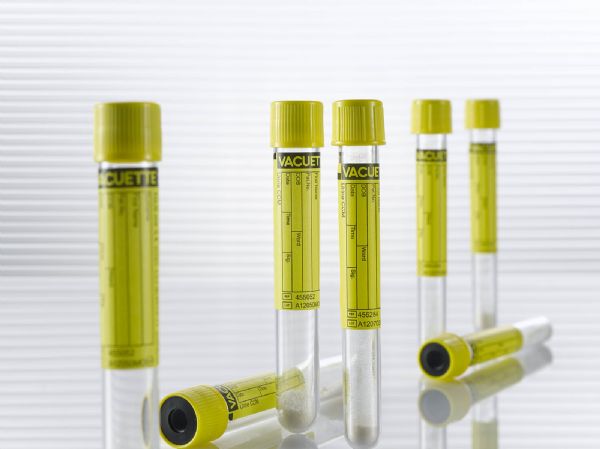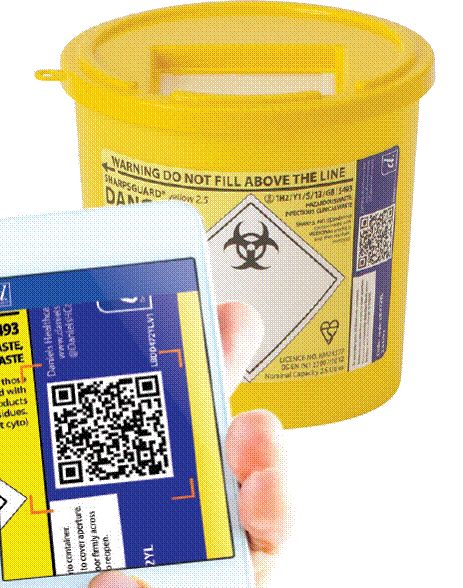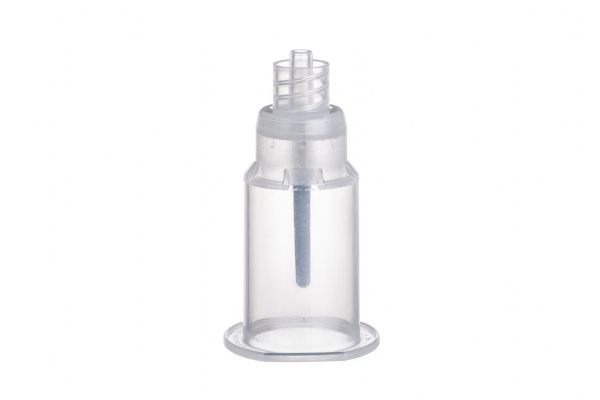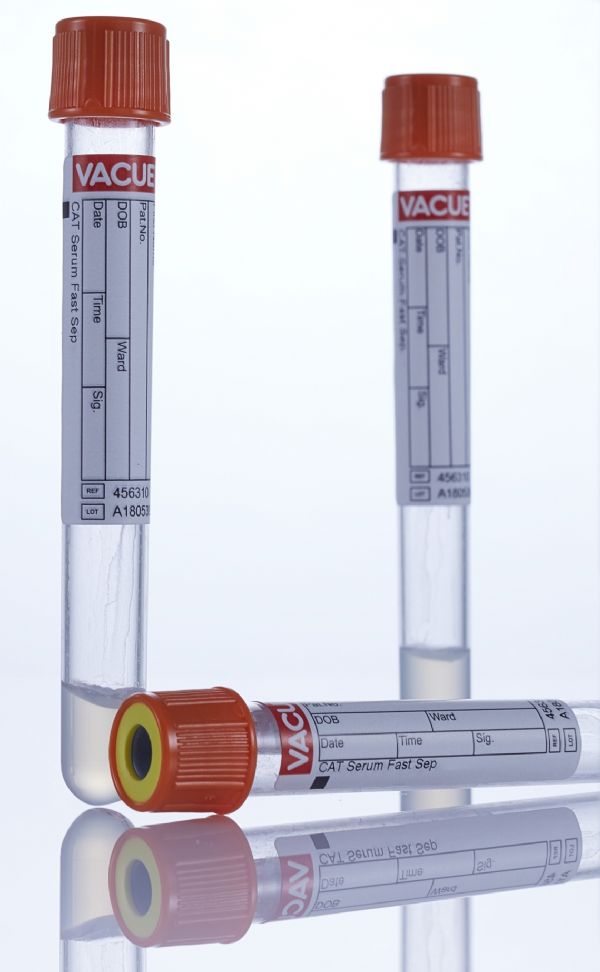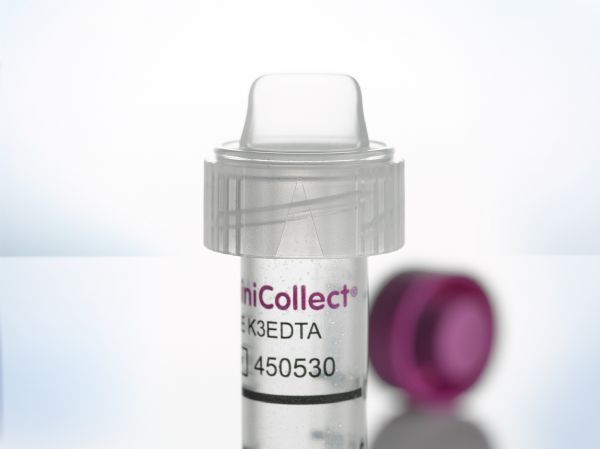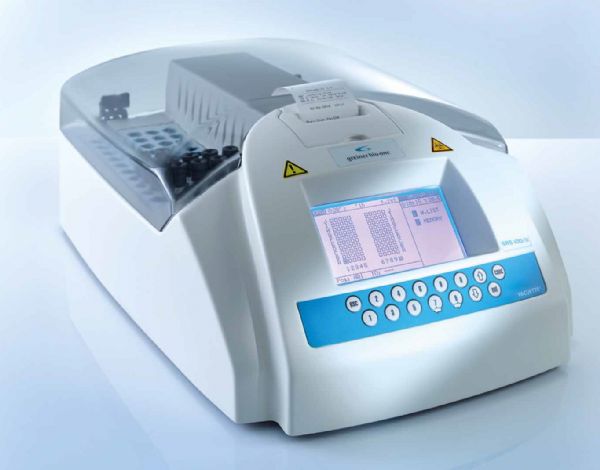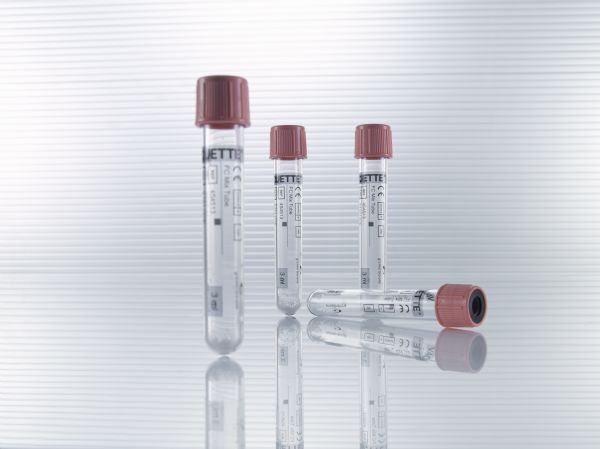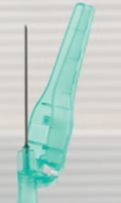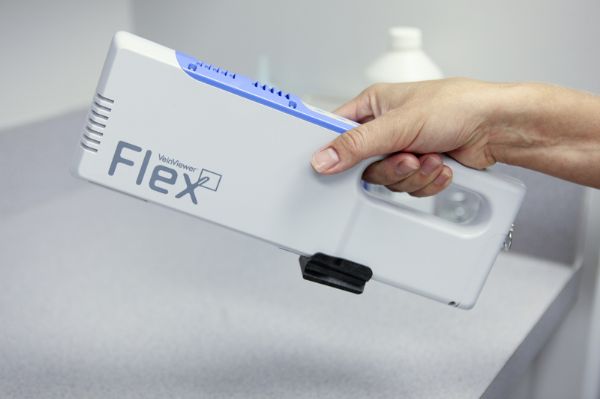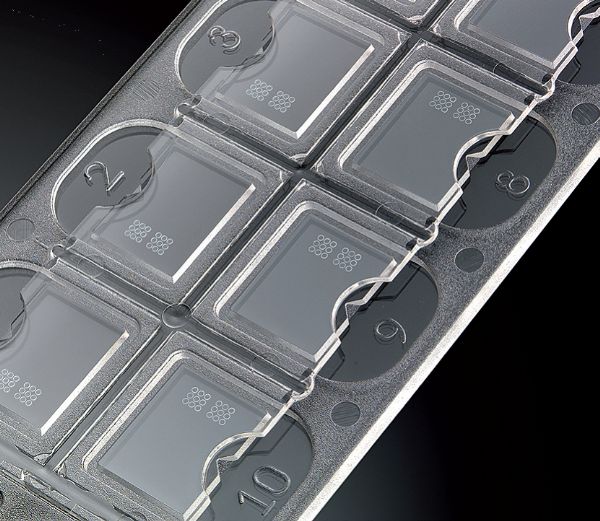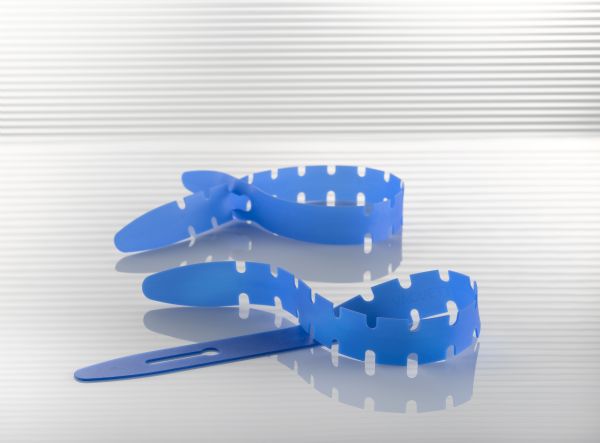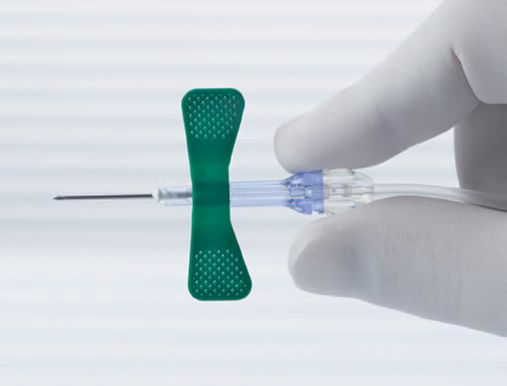Snap it, simply and safely
With SnapIT you can safely:
1. INSERT the ampoule lid into your multi-use SnapIT
2. SNAP open the ampoule
3. EJECT the ampoule lid directly into a sharps container  details
details
|
SnapIT avoids ampoule sharps injuries by keeping both hands away from the sharp edges during ampoule opening. One hand holds the base of the ampoule while the other hand simply uses the SnapIT to snap off the ampoule lid. The ampoule lid is contained safely within the SnapIT until ejected.

|
Glass ampoules - pluses and minuses
Millions of tamperproof glass ampoules are used each year in health care and related practice to contain pharmaceuticals. The practical benefits are clear but resulting sharps injury rates have always been significant.  details
details
|
Healthcare workers in the United States alone report between 600,000 and 1 million sharps injuries per year. Many more go unreported.1 Over one quarter of sharps injuries occur while opening glass ampoules. When the neck of an ampoule is snapped during opening the very sharp edge on the ampoule and the ampoule lid can cause serious cuts. The costs of injuries is high and include suture of laceration, weeks of rehabilitation and loss of salary.
|
Avoid being part of the alarming statistics
One in three nurses have experienced an injury while opening a glass ampoule.2 Ampoule sharps injuries are painful, distressing, susceptible to blood borne pathogens such as HIV, hepatitis B and hepatitis C, and deep cuts can even require suture, microsurgery and extensive rehabilitation.  details
details
|
Ÿ 26% of needlestick and sharps injuries (NSIs) were due to opening an ampoule or broken ampoules.3
Ÿ Most frequently reported circumstances of sharps injuries were opening of ampoules and vials.4
Ÿ Opening ampoules is a particularly high-risk event. 22% and 4% of needlestick and sharps injuries (NSIs) were caused by opening an ampoule or broken ampoules.4
Ÿ 54% of incidents to anaesthesia personnel were caused by broken ampoules.5
Ÿ Occurring in approximately 6% of anaesthetic sessions, the incidence of hand laceration as a result of opening glass ampoules is significant. The prevalence of old hand injury was 26% (25 in 97) of anaesthetic sessions.6

|
Workplace health and safety
An employer shall, as required by work place health and safety laws, provide personal protective equipment (PPE) to shields from workplace hazards. More than 50% of ampoule users have experienced a cut5 and one in four in an anaesthetic session has prevalence of old hand injury.6  detailsa
detailsa
|
SnapIT helps working towards a safer workplace.

|
Minimise risks
Ampoule sharps injuries are a serious occupational health and safety hazard. When the neck of an ampoule is snapped during opening the very sharp edge on the ampoule and the ampoule lid can cause serious cuts.  details
details
|
Most people who work with ampoules have suffered an ampoule sharps injury. SnapITprovides an essential safety solution to:
Ÿ Provide best practice occupational health and safety
Ÿ Avoid infection and contamination risk caused by sharps injuries
Ÿ Reduce time lost to sharps injuries
Ÿ Ensure a safe and effortless ampoule open every time due to the extended lever action
Ÿ Prevent wastage of expensive medication contained in ampoules.

|
This is all you need
SnapIT is available in two slimline cylindrical designs.  details
details
|
Ÿ Trolley Edition for team use featuring a flat side so it can lay on a bench top or trolley without falling over or rolling away
Ÿ Pocket Edition for personal use on a key ring, hung from a lanyard or kept in your pocket.
With two sizes and flexible O-rings, SnapIT can open almost all sizes of glass ampoules that are commonly used.

|
Not just effective, it is cost effective
Once off purchase of the multi-use SnapIT immediately improves safety and delivers ongoing savings by reducing injury costs, overcoming the need for more expensive solutions and avoiding the wastage, cost and environmental impact of single use ampoule openers. The cost of opening an ampoule can be as low as one cent.  details
details
|
The only replacement required is the silicon O-ring, and this is only required if it has been cut by glass fragments. Everytime you replace an O-ring means that you have avoided one injury.

|

References:
|
1. Matson, K. (2000) “States begin passing sharps and needle-stick legislation to protect health care workers.” AORN Journal 72(4): 699-703, 705-7.
2. Smith, D. R., M. Mihashi, et al. (2006). “Epidemiology of needlestick and sharps injuries among nurses in a Japanese teaching hospital.” J Hosp Infect.
3. Smith, D. R. and P. A. Leggat (2005). “Needlestick and sharps injuries among nursing students.” Journal of Advanced Nursing 51(5): 449-55.
4. Guo, Y. L., J. Shiao, et al. (1999). “Needlestick and sharps injuries among health-care workers in Taiwan.” Epidemiol Infect 122(2): 259-65.
5. Pulnitiporn, A., W. Chau-in, et al. (2005). “The Thai Anesthesia Incidents Study of anesthesia personnel hazard.” J Med Assoc Thai 88 Suppl 7: S141-4.
6. Parker, M. R. (1995). “The use of protective gloves, the incidence of ampoule injury and the prevalence of hand laceration amongst anaesthetic personnel.” Anaesthesia 50(8): 726-9. |










